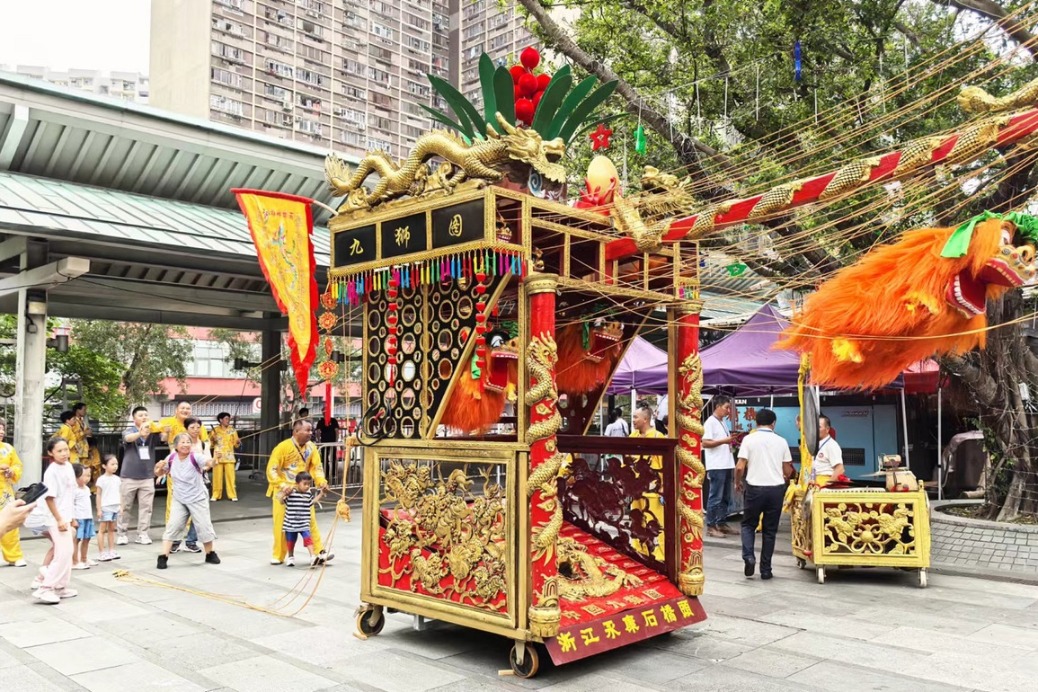Full commitment to sustain improved lives

In 1994, agricultural researcher Zeng Fuping arrived deep amid the karst mountains of South China's Guangxi Zhuang autonomous region.
Zeng, then 30, was part of a team studying the use of latest farming practices and technology, to improve the lives of ethnic communities in the Huanjiang Maonan autonomous county of Guangxi's northern area.
His assignment was supposed to last just two to three years, but Zeng quickly realized the importance of his work and extended his stay – 26 years on, he is still there.
"One task led to another and there was much to do. It only seemed natural that I remain here," Zeng said.
In the past three decades, Zeng has made major contributions to the lives of the ethnic Maonan villagers. Those include resettling poverty-hit residents in new communities based on environmentally sustainable practices that leverage local geographical and other advantages, setting exemplary measures for at least 400,000 residents in similar moves in the region.
One of Zeng's projects involves an "alternative animal husbandry model" based on converting the area's flood-prone land into plots for growing grass and other plant species that can feed high-yielding livestock and prevent erosion of the fragile soil at the same time.
Following the approach that ties technological expertise with commercial enterprise and green agriculture, Zeng and his team of specialists from the Chinese Academy of Sciences trained Huanjiang's farmers to expand the experimental planting zones, subsequently improving the local ecological landscape and raking in sustainable income for them. The county records capacity of 50,000 metric tons of the livestock forage a year, with net income from the new methods up to 10 times that from the common corn previously grown sporadically.
"The farmers were unsure initially and they questioned growing something that they could not eat. But they saw the results themselves and gradually gained the confidence to follow through," said Zeng, who is also the county's deputy chief on top of his work at the academy's Institute of Subtropical Agriculture.
Zeng's lifelong commitment on the ground in Huanjiang reflects the nationwide, all-inclusive resolve in successfully eradicating by this year extreme poverty — defined as living with less than 2,300 yuan ($345) in annual income — and improving lives throughout the country.
Guangxi is home to 12 ethnic groups including the Zhuang, Yao, Miao, Dong and Maonan, with Huanjiang being a key county at the front lines of the fight against poverty as one of the 20 deeply impoverished counties in Guangxi itself. Maonan members comprise one of the country's smallest ethnic communities – about 70 percent of Maonan people, or 64,500, live in Huanjiang, making it the only Maonan autonomous county.
At the end of 2015, there were 66,600 Huanjiang residents who had not been lifted out of poverty, with the poverty rate recorded at 19.56 percent. Among those, Maonan members numbered 14,700, making up 22.07 percent of the poor.
Within the decade, efforts like those of Zeng's have formed a multi-pronged, multilevel fight against poverty, ranging from agriculture and industry to healthcare and housing, that has reaped impressive results for the area. From 2016 to 2019, a total of 65,900 residents in the county were lifted from poverty, with 14,152 Maonan members among that group. The county's poverty rate also fell to 1.48 percent. On May 11, the regional government affirmed that Huanjiang was lifted from poverty and it was removed from the national list of impoverished counties. Huanjiang has since received national accolades for its anti-poverty achievements.
President Xi Jinping himself has called on the Maonan people to make their lives more prosperous. Xi, who is also general secretary of the Communist Party of China Central Committee, had pushed for the elimination of poverty for the entire Maonan ethnic group in his earlier remarks.
Xi said he was pleased to know that all Maonan people have shaken off poverty and their lives have improved significantly.
Not a single ethnic group can be left behind in building a moderately prosperous society in all respects, and the Maonan people themselves should take poverty elimination as a new starting point for a better life, he said.
In turn, the Maonan representatives in Huanjiang recently penned together their thoughts to Xi, sharing with him their joy at being lifted from poverty and expressing their firm determination to build their hometown in line with the Party's work.
Huang Rongbiao, the county's Party secretary, said the encouraging results from placing poverty alleviation as a top priority will serve to boost its development.
"We've focused on main areas including capacity building for residents led by proven expertise, industry and infrastructure," he said.





































